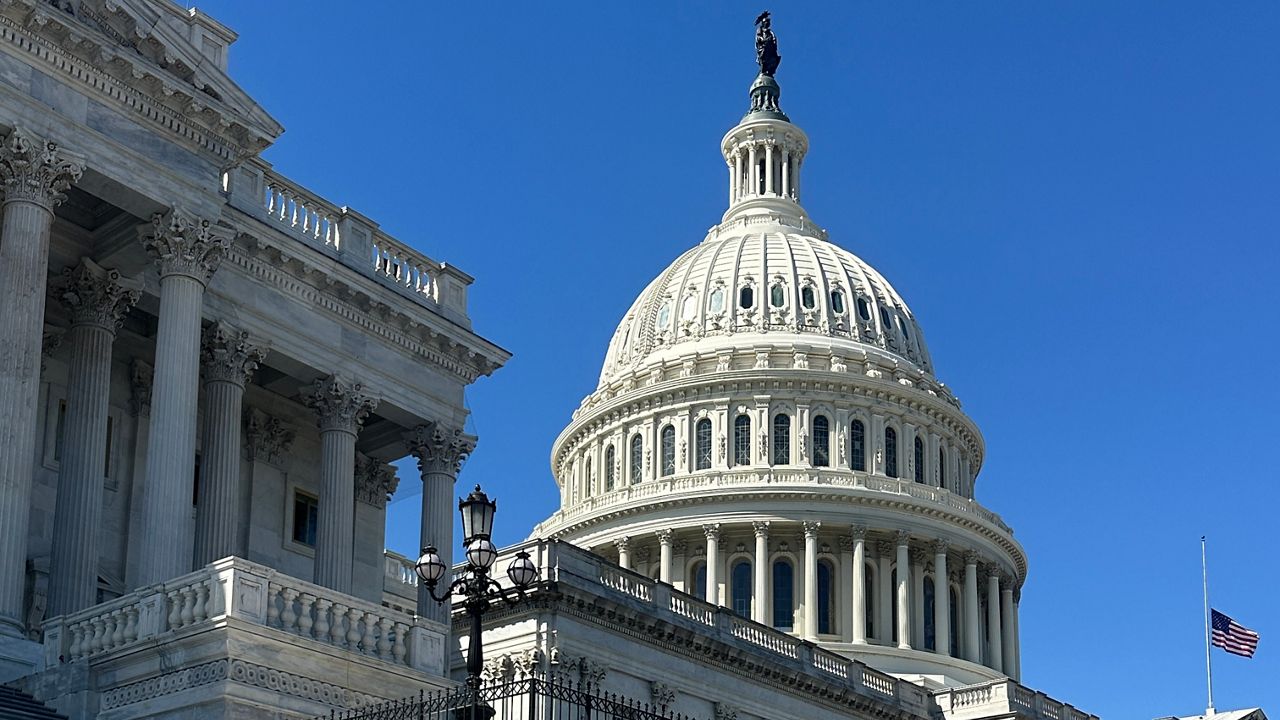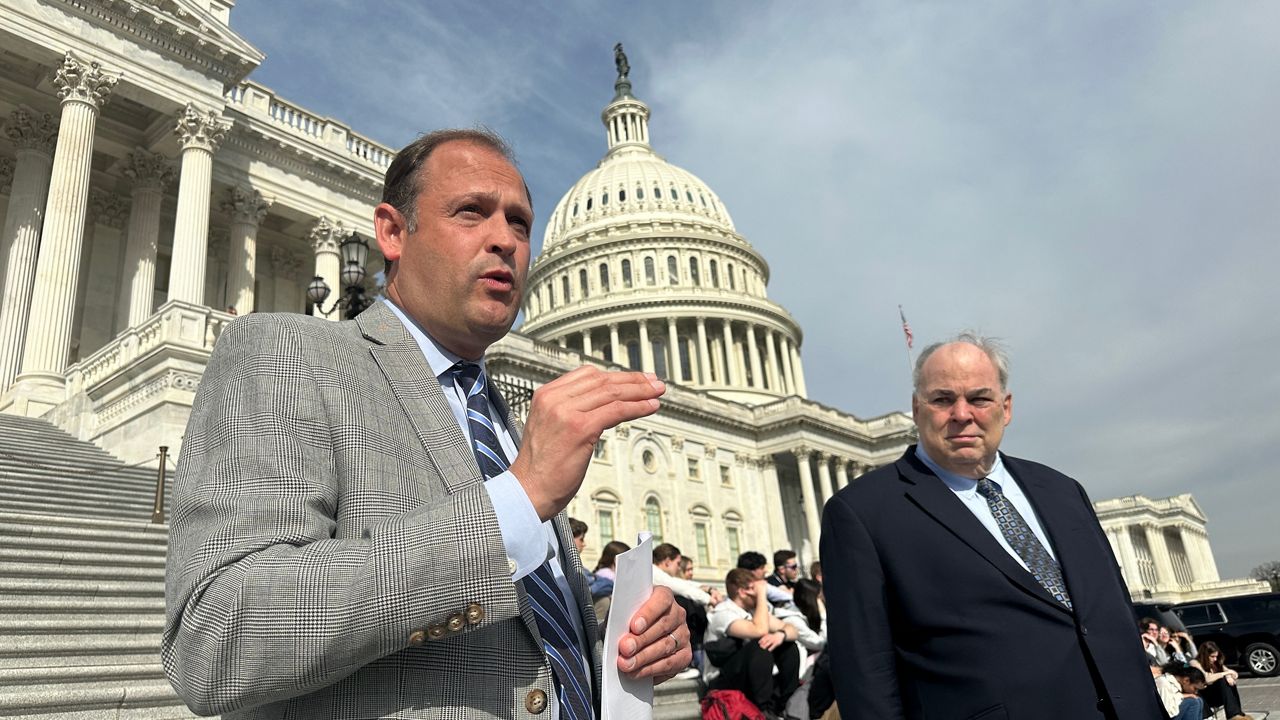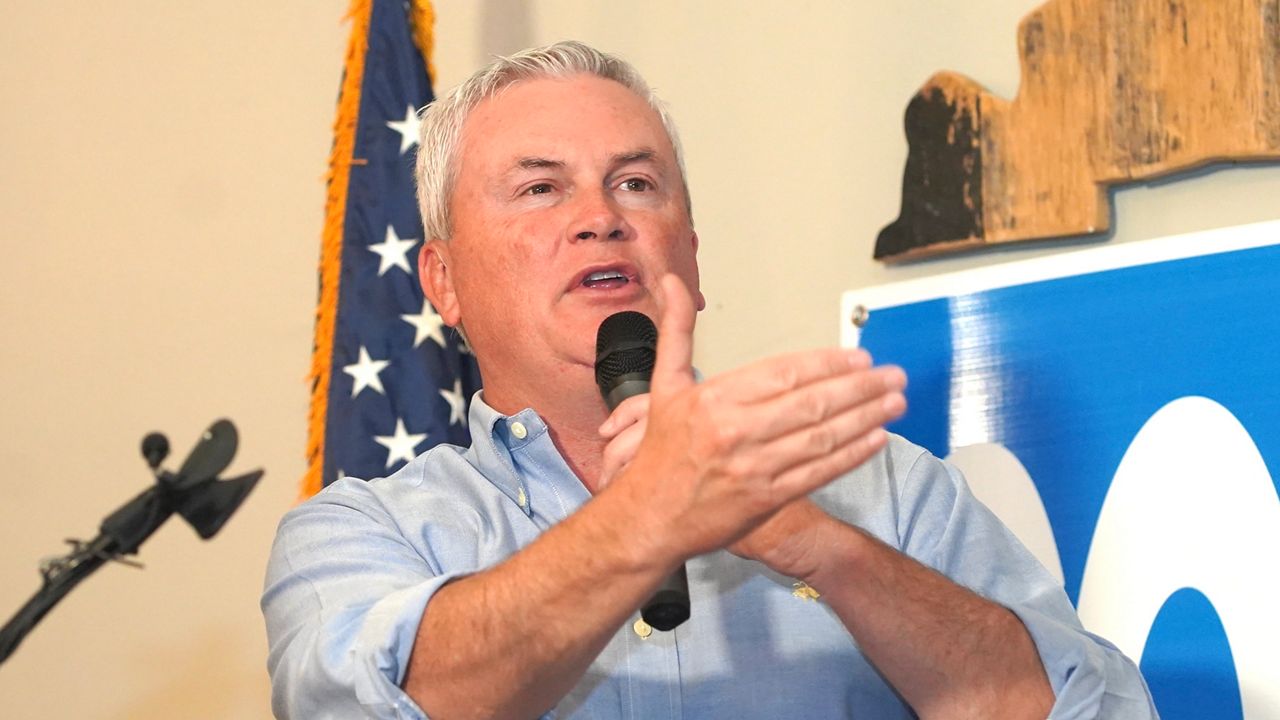WASHINGTON — As part of sweeping changes that also include layoffs and cuts at the U.S. Department of Health and Human Services (HHS), the Substance Abuse and Mental Health Services Administration (SAMHSA) will be folded into the new "Administration for a Healthy America (AHA)," HHS said.
The SAMHSA State Opioid Response Grant is the sole source of funding for the Kentucky Overdose Response Effort (KORE), according to the Kentucky Cabinet for Health and Family Services.
KORE supports organizations focused on recovery and pays for supplies such as the overdose-reversing drug naloxone.
The cabinet has not received any notification that the grant will be cut, said Kendra Steele, executive director of the office of public affairs.
In fiscal year 2024, KORE provided 32,681 people with treatment and recovery support services, and "any impact to that grant or its priorities, such as medications for opioid addiction and harm reduction, would result in the loss of life-saving services for Kentuckians," said Steele.
In a statement to Spectrum News, HHS deputy press secretary Emily Hilliard said the "critical work" of SAMHSA would continue under AHA, "where the programs can be better prioritized."
“Transferring SAMHSA to AHA will increase operational efficiency and improve coordination of health resources for low-income Americans," Hilliard said.
President Donald Trump's administration announced it is also pulling back billions in COVID-19-related funding to state and local health departments. The New York Times reported that includes about $1 billion from SAMHSA.
”Slashing SAMHSA funds in the middle of an overdose and mental health crisis shows a total disregard for the lives of poor and working-class people,” Shameka Parrish-Wright, director of the organization VOCAL-KY, said in a statement. ”Slashing SAMHSA funds in the middle of an overdose and mental health crisis shows a total disregard for the lives of poor and working-class people,” Shameka Parrish-Wright, director of the organization VOCAL-KY, said in a statement. “It’s also a slap in the face, creating chaos and uncertainty, to local public health agencies on the front lines of saving lives across the country.”
Shelly Weizman, associate director of the Center on Addiction and Public Policy at the O’Neill Institute at Georgetown Law, said people in the addiction and recovery community are feeling a lot of uncertainty.
“This has been hard-fought and a long haul, so pivoting in this way is troubling because we, number one, don’t know what we’re pivoting to,” she said. “We need stability, not uncertainty.”
Tara Hyde, who has been in recovery nearly 14 years, said federal leaders should invest in mental health and recovery.
“I'm really glad to hear that the federal administration is looking at making Americans healthy again,” Hyde said. “What we want to make sure that is captured in that is investing in mental illness and substance-use disorder recovery because we know it is a proven economic and public health strategy that benefits everyone, and right now … it has not been listed as a priority in the federal administration.”











